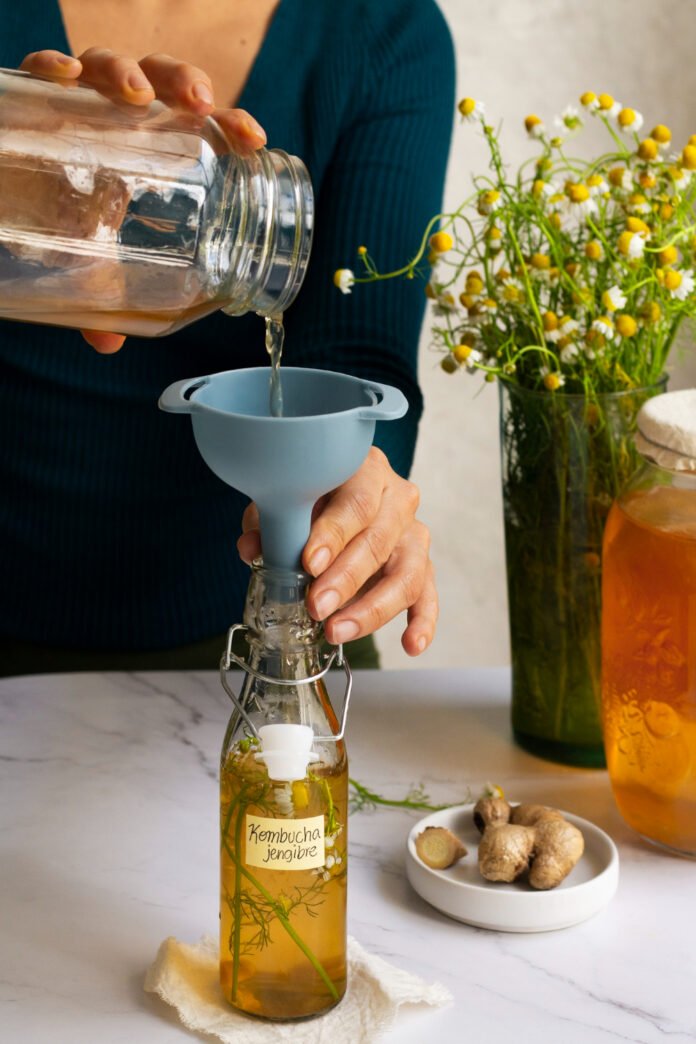How to dispose of cooking oil? Disposing of cooking oil properly is crucial for both environmental protection and maintaining your plumbing system. Improper disposal can lead to clogged pipes, pollution, and other issues. In this comprehensive guide, we’ll walk you through everything you need to know about disposing of cooking oil safely and responsibly.
Why Proper Disposal of Cooking Oil Matters
Environmental Protection
Cooking oil, when disposed of improperly, can have significant environmental consequences. When oil is poured down the sink or toilet, it can lead to clogs in plumbing systems, which may result in costly repairs and environmental damage. The oil can also end up in waterways, harming aquatic life and disrupting ecosystems.
Plumbing Health
Pouring oil down your drains can cause serious problems for your plumbing. Oils and fats solidify as they cool, leading to blockages in pipes. These blockages can lead to slow drainage, backups, and even major plumbing issues.
Community Wellbeing
Proper disposal of cooking oil ensures that it does not contribute to larger waste management issues. When oil is disposed of responsibly, it reduces the strain on community waste systems and helps keep local environments clean.
Common Mistakes in Cooking Oil Disposal
Pouring Oil Down the Sink or Toilet
How to dispose of cooking oil: This is one of the most common and problematic mistakes. While it might seem like an easy solution, pouring oil down the sink or toilet leads to blockages and environmental harm.
Throwing Oil Directly into the Trash
While throwing oil in the trash may seem like a quick fix, it can be problematic if not done correctly. Oil can leak from trash bags, causing issues at waste management facilities.
Mixing Oil with Other Waste
Mixing cooking oil with other types of waste can create a mess and complicate recycling efforts. It’s important to keep oil separate for proper disposal.
Methods for Disposing of Cooking Oil
Reuse or Recycle Cooking Oil
Reusing Cooking Oil
If the oil is clean and has been used for frying, you can filter and reuse it for future cooking. Allow the oil to cool, then strain it through a coffee filter or cheesecloth to remove food particles. Store it in a clean, airtight container.
Recycling Cooking Oil
Many recycling centers accept used cooking oil. Check with your local recycling center to see if they have a cooking oil recycling program. Some centers may repurpose the oil into biodiesel or other products.
Dispose of Cooking Oil in the Trash
Proper Preparation
If you need to throw cooking oil away, first let it cool and solidify. You can use a container like a milk carton or a plastic bottle to contain the solidified oil. Make sure to seal the container tightly before placing it in your trash.
Donate Cooking Oil
Food Banks and Charities
Some food banks and charities accept used cooking oil, especially if it’s in good condition and hasn’t been used for frying. Contact local organizations to inquire about their donation policies.
Take Cooking Oil to a Recycling Center
Finding a Recycling Facility
How to dispose of cooking oil: Locate a recycling facility in your area that accepts cooking oil. Many cities have designated drop-off locations or recycling centers that handle cooking oil and other fats. Use online resources or local government websites to find the nearest facility.
Use a Grease Disposal System
Grease Traps and Collection Systems
For commercial kitchens or frequent oil users, investing in a grease trap or collection system can be an efficient solution. These systems collect and separate grease from wastewater, making disposal easier.
How to Store Cooking Oil Before Disposal
Allow Oil to Cool
After cooking, let the oil cool to a manageable temperature before handling it. This prevents burns and makes the oil easier to transfer.
Use a Container
Pour the cooled oil into a container with a tight-sealing lid. This could be an empty bottle, jar, or any container that can hold the oil securely.
Label the Container
Label the container clearly to avoid confusion. This can be helpful if you’re storing it before taking it to a recycling center or disposal facility.
Store in a Cool, Dry Place
Keep the container in a cool, dry place until you’re ready to dispose of it. Avoid storing it near heat sources or in direct sunlight.
DIY Projects with Old Cooking Oil
Homemade Soap
How to dispose of cooking oil: Old cooking oil can be used to make homemade soap. This involves mixing the oil with lye and water to create soap through a process called saponification. There are many tutorials available online for making soap at home.
Bird Feeder
You can use old cooking oil to make bird feeders. Mix the oil with birdseed and mold it into a feeder shape. This provides a food source for birds and repurposes the oil in an environmentally friendly way.
Composting
In small quantities, used cooking oil can be added to compost. It should be mixed thoroughly with other compost materials to avoid attracting pests and to ensure proper decomposition.
What Not to Do With Cooking Oil
Do Not Pour Down Drains
How to dispose of cooking oil: Avoid pouring oil down the sink, toilet, or any other drains. This can cause blockages and environmental harm.
Do Not Throw in Open Trash
Throwing oil directly into open trash bins can lead to spills and leaks. Always use a container to contain the oil before disposal.
Do Not Burn Cooking Oil
Burning cooking oil is dangerous and can release harmful fumes. It’s also not an environmentally friendly disposal method.
Environmental Impact of Cooking Oil
Water Pollution
Improper disposal of cooking oil can lead to water pollution. When oil ends up in waterways, it creates a layer on the surface, blocking sunlight and affecting aquatic plants and animals.
Soil Contamination
Oil spills can contaminate soil, affecting plant growth and potentially entering the food chain.
Wildlife Harm
Animals that come into contact with oil can suffer from health issues. Oil can affect their fur, feathers, and overall health, leading to potential death or suffering.
Conclusion: How to dispose of cooking oil?
How to dispose of cooking oil? Proper disposal of cooking oil is not just a matter of convenience—it’s a crucial step in protecting both our environment and our plumbing systems. By understanding the impacts of improper disposal and exploring various responsible methods, you can contribute to a cleaner and healthier world. Whether you choose to recycle, reuse, or dispose of the oil in a safe manner, every effort helps reduce pollution, prevent clogs, and support community well-being.
Remember, the key to effective disposal is preparation and awareness. Allow oil to cool, use appropriate containers, and follow local regulations and guidelines. By making informed choices and taking responsibility for your cooking oil, you play a vital role in sustainable living and environmental stewardship.
So next time you’re faced with leftover cooking oil, consider the best disposal method for your situation. Your efforts not only help keep our waterways and soil clean but also ensure that your plumbing stays in good working condition. Let’s all do our part to make a positive impact on the environment, one drop of oil at a time.
Frequently Asked Questions
Q:1 How can I tell if my local recycling center accepts cooking oil?
A:1 Check the recycling center’s website or contact them directly to confirm if they accept cooking oil. Some centers may have specific requirements or guidelines for accepting used oil.
Q:2 Can I mix used cooking oil with other liquids for disposal?
A:2 It’s best to avoid mixing cooking oil with other liquids. This can complicate the recycling or disposal process. Keep cooking oil separate for proper handling.
Q:3 Is it safe to use old cooking oil for frying again?
A:3 If the oil is clean and has been properly filtered, it can be reused for frying. However, if the oil smells rancid or has an off taste, it’s best to dispose of it.
Q:4 What should I do if I accidentally pour oil down the drain?
A:4 If you accidentally pour oil down the drain, it’s important to address it quickly. Avoid using chemical drain cleaners, as they can react with the oil. Contact a plumber to assess and address any potential blockages.
See More


